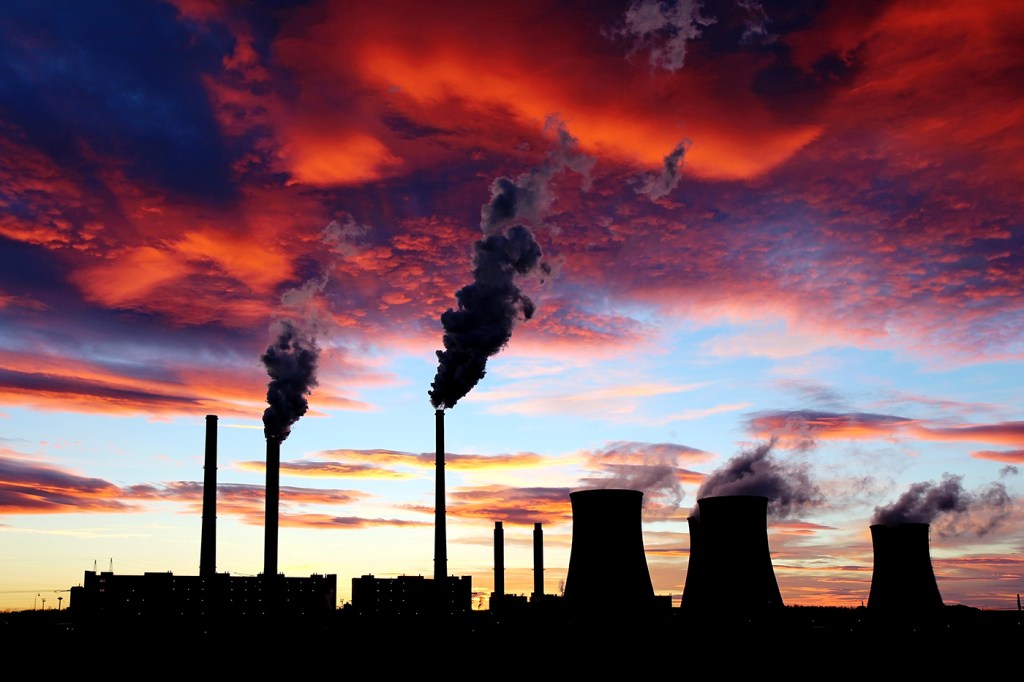A bright side to those dire climate change reports?

A dire new climate report compiled by 13 U.S. federal agencies begins with an unequivocal pronouncement: “Earth’s climate is now changing faster than at any point in modern history, primarily as a result of human activities.”
“Climate-related risks will continue to grow without additional action,” the report reads. While global efforts are in place to mitigate the root causes of climate warming, and regional efforts are in place to adapt to the effects already felt, neither “currently approaches the scales needed to avoid substantial damages to the U.S. economy, environment, and human health and well-being over the coming decades.”
However, Jennie Stephens, a Northeastern professor of sustainability science and policy, has reason to be optimistic.
She said that a wave of newly elected U.S. Congress members fighting for substantial climate-related policy, coupled with a generation of politically active young people, is a powerful force for “moving toward more sustainable consumption patterns.”

Jennie Stephens. Photo by Adam Glanzman/Northeastern University
Released Friday, the report focuses on the effect climate change will have on the United States economy: $141 billion from heat-related deaths, $118 billion from sea level rise, and $32 billion from infrastructure damage by the end of the century. The report is the second volume of the National Climate Assessment, which the federal government is required by law to produce every four years.
The assessment comes at the heels of a special report from the United Nations that describes devastating food shortages and massive die-off of coral reefs caused by climate change by 2040.
The science supporting both reports hasn’t changed, but a key difference is that the U.S. report focuses on the economic impact of climate change, said Stephens, who directs the School of Public Policy and Urban Affairs at Northeastern.
“I think that’s what most powerful for people,” she said. “Not only is climate change scary and disruptive, there are very deep, very dire regional, community, and individual economic impacts at stake.”
But Stephens said the dire economic stakes make her optimistic.
“This report can highlight to people that the cost of inaction is higher than the cost of investing in change,” said Stephens, who also directs strategic research collaborations at the Global Resilience Institute.
The report forecasts record wildfires in California, crop failures in the Midwest, crumbling infrastructure in the South, and massive flooding in the Northeast, all caused by climate change, and some of which the U.S. is already starting to see.
According to the report, fossil fuel combustion accounts for roughly 85 percent of total U.S. greenhouse gas emissions. Comprehensive policies at the state, local, and tribal government levels can greatly reduce carbon emissions, according to the report. Furthermore, “integrating climate adaption into existing investment policies and practices” will address “a significant portion” of climate-related risk, according to the report.
Stephens said that this sort of financial investment in sustainable policies and actions is what’s been missing so far.
“What we’re facing is all these powerful interests saying ‘It’s too expensive to move away from fossil fuels,’ when that’s not true at all,” she said. “It’s a matter of political will.”
And Stephens sees that political will starting to change, staring with her students who are consistently “coming up with creative ideas for” changing the types of energy people use, and how much they use it.
“We can’t just keep doing the same things and expecting different results,” she said. “We’re going to need some pretty radical thinking and radical change.”





